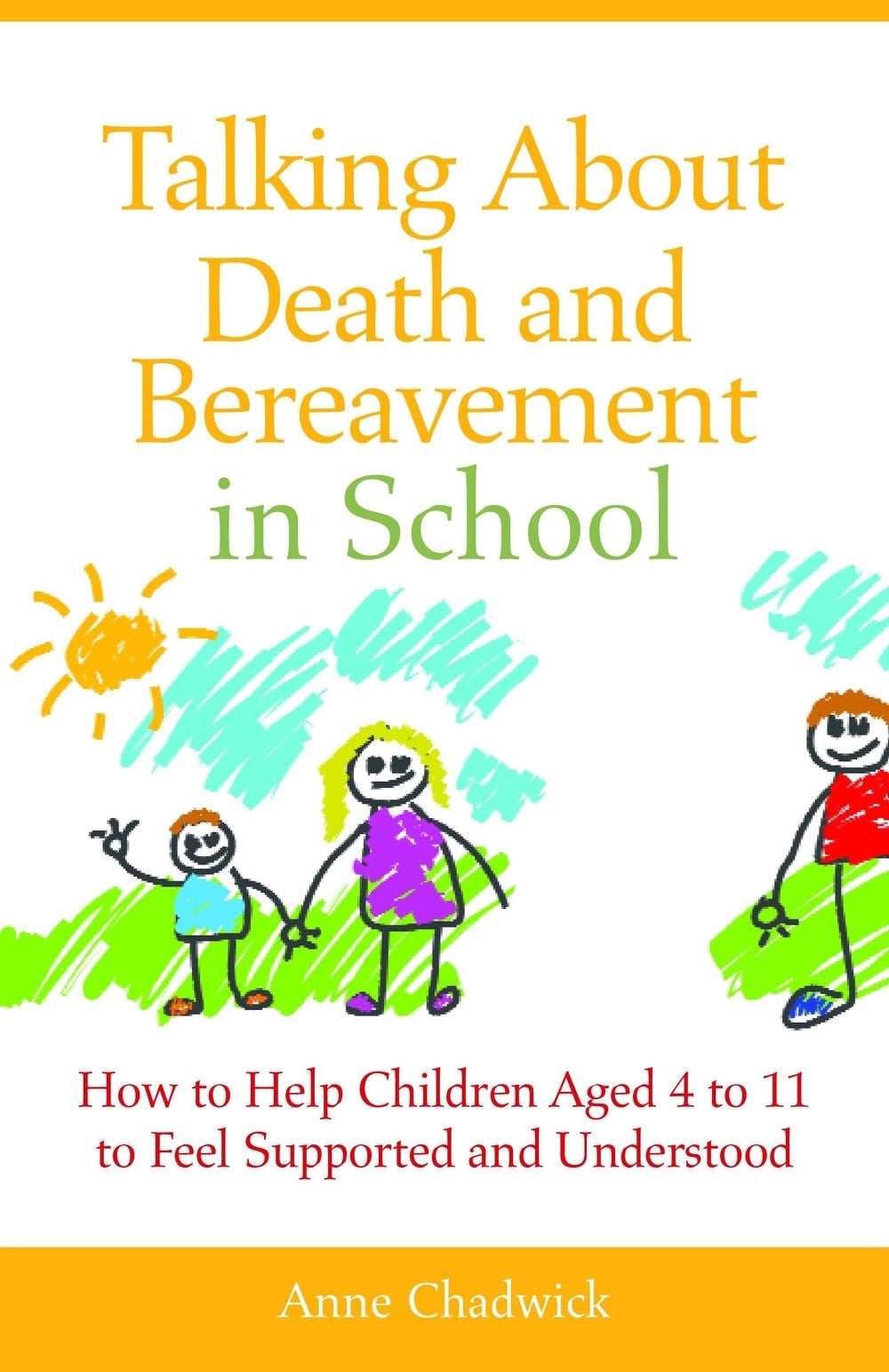
Press Reviews
Bereavement Care
The book is very short and is written in an accessible style which should make it easier for busy teachers to find the time for additional reading. The use of case studies throughout the book helps to illustrate and personalise the topics discussed.
Grampian Child Bereavement Network
Schools which buy this book, will obtain practical information and guidance about supporting children through the painful experience of death and bereavement. The book provides comprehensive information about death and bereavement and sets out how and why schools have an important role in supporting children at this time... the book will be invaluable in a school's planning of bereavement and loss policies; It would inform the content of an emotional health and well-being curriculum; and it also suggests how these sad events can be turned into a positive learning experience.
Chidlren's Webmag
This is a short but significant book. It allows the individual to think about their own experiences of loss over their lives and how they managed each situation and how they were supported in each one. I actually enjoyed reading it. As in all JKP books there is a comprehensive list of additional relevant publications and help organisations.
The Good Bookstall
This slim volume is a really worthwhile read for anyone... this book... is a very, very worthwhile one to read for anyone who has dealings with junior school children.
John Holland, educational psychologist and co-author of Lost for Words: Loss and Bereavement Awareness Training
Ann Chadwick’s very readable and humane book for schools contains gems of wisdom from her wide experience of supporting bereaved children, with her advice presented in an accessible way for the non-specialist in the potentially problematic area of death.
Noel Purdy, Stranmillis University College, Belfast
NAPCE Journal: Pastoral Care in EducationChadwick addresses the challenges of talking about death and bereavement with children, offering clear, practical suggestions and encouraging school staff to have the courage to be 'brave' and to 'break new ground' in tackling this topic and so prepare their children for the reality of life and death from an early age. In so doing, she notes that it is often important at the outset to correct children's existing misconceptions of death which can often lead to fears and anxieties. The book includes useful sections on the death of a staff member or pupil as well as multiple losses, and considers the emotional, educational and behavioural impact of bereavement using a case study of a young boy whose mother has died... The book provides welcome encouragement for school staff to provide clear, age-appropriate explanations to children and to allow open and honest discussion on this important topic.
